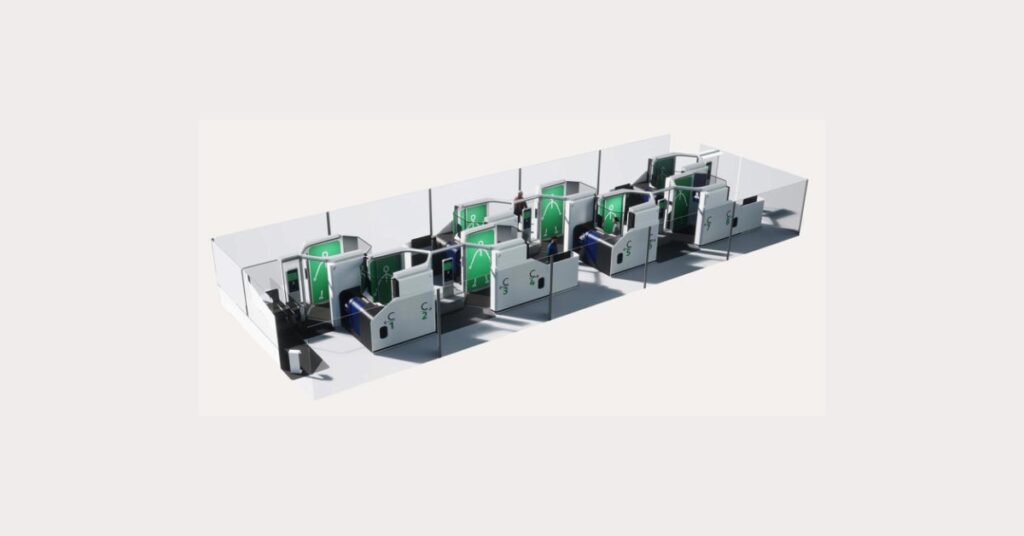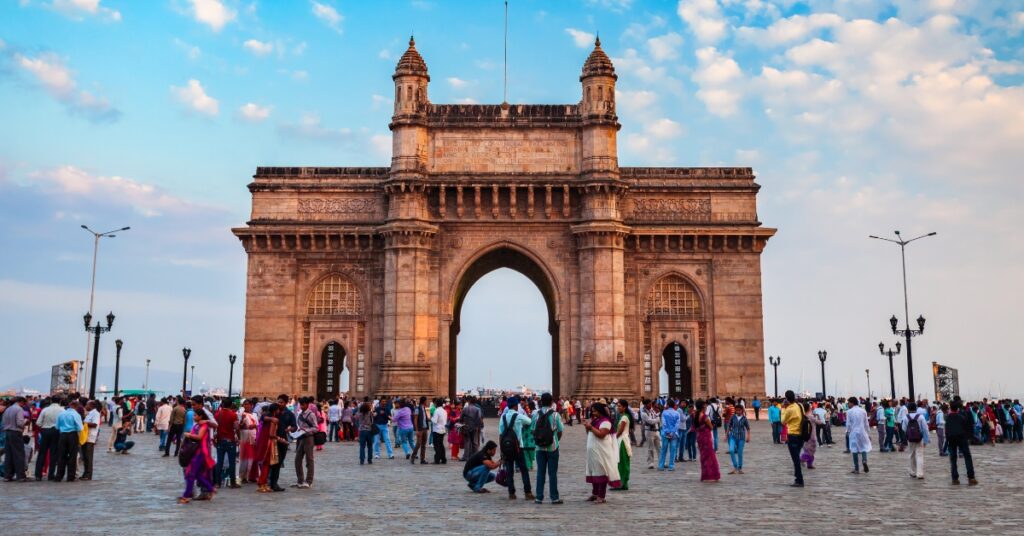Step into the future of airport security with Micro-X’s innovative booths, promising a swift, stress-free security check process in as little as 30 seconds
Table of Contents
Australian company Micro-X is developing a cutting-edge system near Seattle’s airport to speed up the airport security screening process.
Mirroring supermarket self-checkout lanes, the reimagined checkpoints are designed to streamline the screening procedure, reducing the average process time to an astonishing 30 to 60 seconds per passenger.
Self-Service Screening Booths
Travelers will step into booths where guided by an avatar, they will be instructed to place their belongings into a compact CT scanner.
The scanner, using X-rays, creates a 3D image of the contents, which is then automatically analyzed by machine-learning algorithms to identify prohibited items.
Concurrently, travelers are scanned by an electromagnetic body scanner overseen by the virtual avatar.
TSA officers intervene only when the system flags something suspicious, or a traveler requires assistance.
Micro-X plans to feature eight of these booths in the space currently utilized for single-line lanes, thereby enhancing the flow of passengers even if someone takes extra time or triggers an alarm.
Financial and Technological Implications
Currently in its prototype stage, the technology comes with a hefty price tag, being approximately twice as expensive as existing security setups.
Despite the higher initial costs, John Fortune, the Department of Homeland Security (DHS) Screening at Speed program manager overseeing the project, envisions it to be “competitive” on a per-passenger basis.
A standout feature of Micro-X’s technology is its CT scanner’s utilization of a revolutionary mechanism, diverging from the century-old standard technology.
This innovation results in X-ray tubes that are significantly lighter and more compact, granting finer control over timing and dosing.
Potential Challenges and Future Prospects
Though promising, experts note that the technology has hurdles, including developing algorithms capable of accurately interpreting various scans.
Furthermore, the system’s reliance on automated instructions raises questions about its effectiveness in guiding passengers without human assistance.
Despite these challenges, Micro-X is optimistic about the future, aiming to test the first of six screening booths within the next 12 to 18 months, backed by a DHS contract extension worth up to $14 million.
If successful, this venture could reshape airport security, harmonizing safety with speed and convenience.
The futuristic vision for the industry even includes continuous passenger scanning without stopping at checkpoints, a development that might be seen in a few years, according to Fortune.







